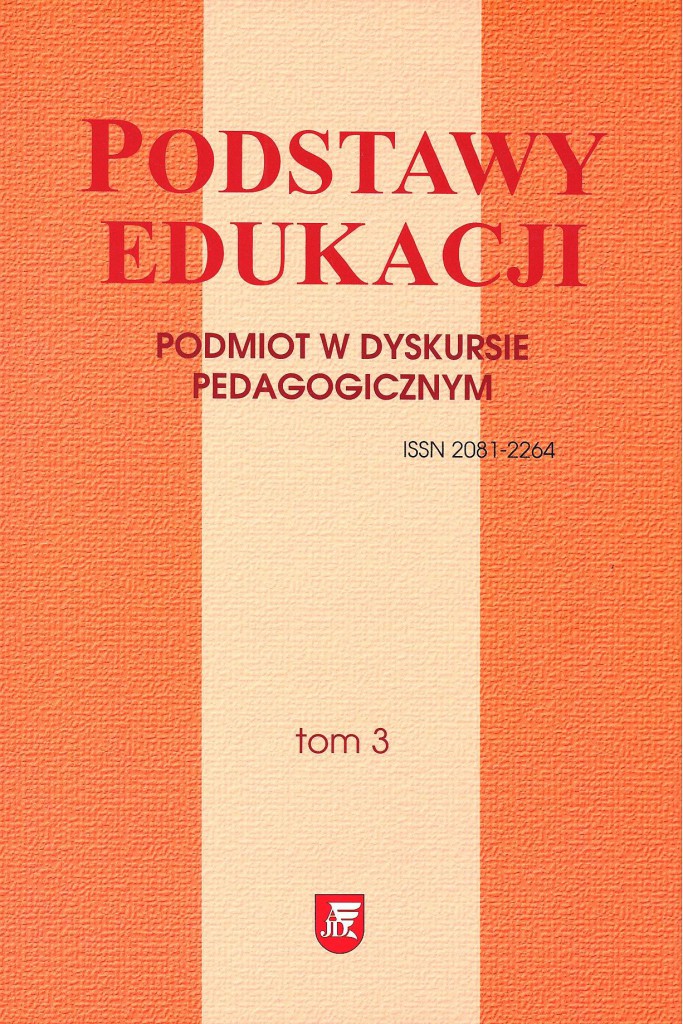Abstrakt
Artykuł zajmuje się tematyką wzajemnych relacji pomiędzy religią a powstającymi na przestrzeni wieków „historycznymi” szkołami psychologii. Okres ten, rozciągający się od 1879 roku do lat 50. XX wieku, jest dla psychologii szczególnie ważny, ponieważ kształtowała się wówczas jej tożsamość – jako samodzielnej dyscypliny naukowej. W artykule zostały przedstawione poglądy wybitnych twórców klasycznych szkół i kierunków w psychologii na sprawy związane z religią i religijnością. Znaleźli się wśród nich, m.in.: W. Wundt, F. Brentano, W. James, S. Freud, C.G. Jung, A. Adler, E. Fromm, W. Stern, R. Otto, G.S. Hall, G.H.Mead, J.B. Watson, H.J. Eysenck i G. Allport. W artykule zostały omówione istotne dla zrozumienia tematyki zagadnienia, wśród których na szczególną uwagę zasługują ideologiczne poszukiwania optymalnych podstaw aksjologicznych twórców historycznych szkół, problematyka terminologiczna oraz zmiany nastawienia do religii i religijności, zachodzące w poszczególnych kierunkach psychologicznych
Bibliografia
Adler, A. (2008). Menschenkenntnis. Köln.
Cohn, R.C., Farau, A. (1999). Gelebte Gesichte der Psychotherapie. Stuttgart.
Doktór, T. (1988). Taiji: medytacja w ruchu. Warszawa.
Eagleton, T. (2008). Święty terror. J. Konieczny (tłum.). Warszawa.
Eliade, M. (1988). Historia wierzeń i idei religijnych. S. Tokarski (tłum.). Warszawa.
Eyseneck, H.J., Sargent, C. (1982). Explaining the Unexplained. London.
Freud, S. (1975). Introductory Lectures on Psychoanalysis. London.
Freud, S. (2010). Totem und Tabu. Köln.
Fromm, E. (1967). Psychoanalysis and Religion. New York, Toronto, London.
Gantowski, P. (1927). Medycyna pastoralna. Poznań – Warszawa – Wilno – Lublin.
Groß, M. (2001). Die Natur der Gesellschaft. Weinheim und München.
Jung, C.G. (1989). Podróż na Wschód. L. Kolankiewicz (wyb. i oprac.). W. Chełmiński i in. (tłum.). Warszawa.
Kiereś, B. (2000). Behawioryzm. W: A. Maryniarczyk i in. (red.). Powszechna encyklopedia filozofii. T. 1. Lublin.
Kowalczyk, S. (2000). Brentano. W: A. Maryniarczyk i in. (red.). Powszechna encyklopedia filozofii. T. 1. Lublin.
Langer, N. (2006). Psychologie. München.
Leahey, T.H. (1987). A History of Psychology. New Jersey.
Lorenz, K. (1973). Die acht Todsünden der zivilisierten Menschheit. München – Zürich.
Łyko, Z.Z. (1983). Z problematyki współczesnej psychologii empirycznej. Rocznik Teologiczny Chrześcijańskiej Akademii Teologicznej, 1.
Niemczyk, J.B. (1981). Rozważania o religii. Rocznik Teologiczny Chrześcijańskiej Akademii Teologicznej, 1.
Pieter, J. (1974). Historia psychologii. Warszawa.
Rode, M. (1984). Zarys dziejów myśli filozoficznej. Warszawa.
Rosińska, Z. (1982). Jung. Warszawa.
Schulz, D.P., Schulz, S.E. (2008). Historia współczesnej psychologii. R. Andruszko (tłum.). Kraków.
Spasowski, W. (1933). Wyzwolenie człowieka. Warszawa.
Störing, H.J. (1996). Kleine Geschichte der Philosophie. Frankfurt am Main.
Szewczyk, W. (1962). Psychologia. Warszawa.
Szymaniak, A. (2008). Skinner. W: A. Maryniarczyk i in. (red.). Powszechna encyklopedia filozofii. T. 9. Lublin.
Tatarkiewicz, W. (1983). Historia filozofii. T. 3. Warszawa.
Wątróbski, L. (1977). Twórca fenomenologii obiektywistycznej. Novum, 10.
Wundt, W. (1913). Grundriss der Psychologie. Leipzig.
Wundt, W. (1914). Sinnliche und unsinnliche Welt. Leipzig.
Zdybicka, Z.J. (1984). Człowiek i religia. Lublin.
OŚWIADCZENIE AUTORA:
Mam świadomość, że czasopismo jest wydawane na licencji Creative Commons - Uznanie autorstwa (https://creativecommons.org/licenses/by/4.0/legalcode).
Przesyłając artykuł wyrażam zgodę na jego udostępnienie na tej licencji.
